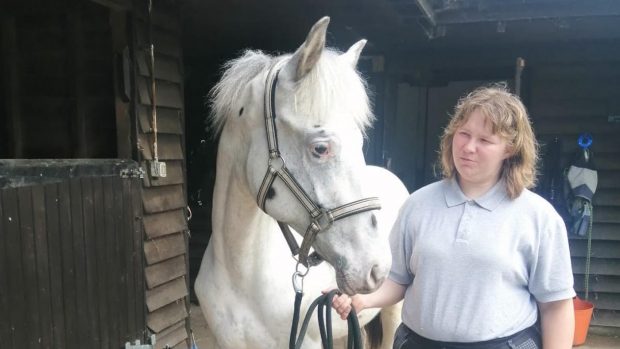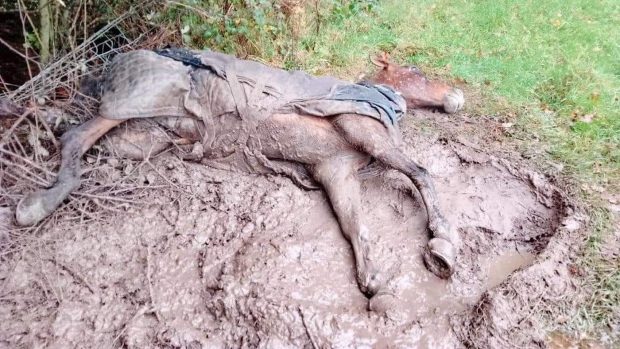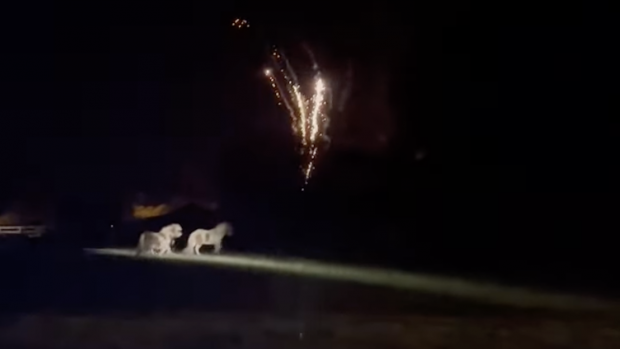Preparation is the key to coping with Bonfire Night, which can be a stressful time for horse owners. And with displays starting earlier each year, you need to plan well in advance.
The RSPCA recommends that horses should be stabled while fireworks are being let off, ideally where the fireworks are not visible. You may need to shut the top stable door. This will obviously depend on the individual horse.
Try to keep your horse to his normal routine and with his usual companions.
Check your field and stable for objects that could cause injury if your horse becomes frightened.
The Blue Cross suggests being proactive — wherever possible, you should tell your neighbours and local fireworks display organisers there are horses nearby, so they can ensure fireworks are set off in the opposite direction. Ask them to inform you when and at what time fireworks are due to be launched. Check the local press, shop and village noticeboards, and listen to the radio to find out where and when displays will be held in your area.
Voice any worries to local organisers. According to the RSPCA, some displays have
been altered to reduce noise levels due to public concerns for animals.
Stay with your horse if you are unsure how he will react to the noise. Your presence should have a calming effect. Even if horses seem relaxed, check them throughout the evening.
If you know your horse reacts badly to fireworks, it’s worth speaking to your vet about sedation in advance.
Recommend low-noise fireworks to organisers — they are available from most firework outlets and are less likely to cause distress. Fireworks registered under category two of the British Standard are lower noise.
The Blue Cross says it is important not to take the risk of riding when you think fireworks might be set off.
Leave a radio on near your horse’s stable to lessen the noise of fireworks.
Give horses plenty of hay to keep them occupied.
Sometimes cotton wool in the horses’ ears or ear covers may make a difference.
The International League for the Protection of Horses (ILPH) advises having sand and water nearby in case of a fire around the stables. Make sure your fire extinguishers, evacuation procedures and other precautions are in good working order and everyone is aware of them.
Check you have adequate third-party liability insurance — if your horse is frightened and escapes, causing an accident, then you could be held liable.
If you are leaving your horse in the care of someone else, leave clear instructions and contact details for you and your vet should any problems arise.
In the morning check your field for any stray fireworks that might
have landed.
- More advice of coping with fireworks




